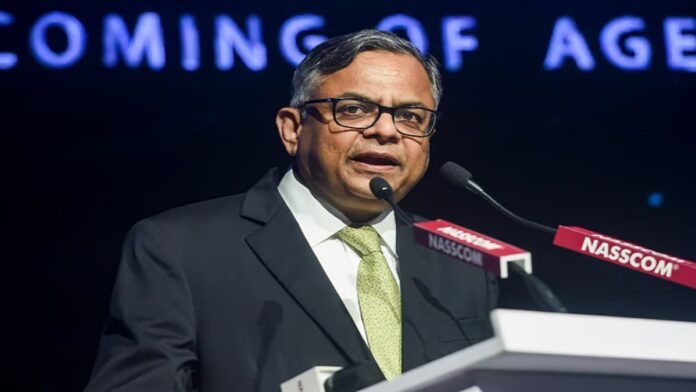With global supply chains increasingly tilting in India’s favour, the manufacturing sector is poised for a transformative era, Tata Sons chairman N Chandrasekaran said on Thursday in his New Year message to employees.
Describing the present moment as “a new manufacturing golden age for India,” Chandrasekaran expressed hope and optimism for 2025, following a challenging 2024 marked by the passing of Ratan Tata, Tata Group chairman emeritus.
Also ReadReliance Power arm gets interim relief from HC against SECI order
“Manufacturing has the power to reshape our economy in India,” Chandrasekaran wrote, highlighting the pivotal role of global supply chain realignments. “What once seemed like a short-term reaction to the pandemic has become a long-term shift. Resilience now outweighs mere efficiency, and India is well-positioned to benefit from this new equation with its vast talent pool and growing manufacturing capacity.”
Also Read “Corporate India in a sweet spot, to scale up capex” Aero India 2025: SAAB’s Vision and Focus on AI-Driven Innovation Mandatory domestic sourcing rule extended to solar cells India at the forefront of the AI and tech revolution: Key insights from new global labor report
Chandrasekaran reaffirmed Tata Group’s ambitious plans to create 500,000 manufacturing jobs over the next five years. Investments in cutting-edge facilities are central to this vision, including India’s first semiconductor fabrication unit in Gujarat, advanced OSAT plants in Assam, an electronics assembly plant in Karnataka, an automotive manufacturing facility in Tamil Nadu, and battery cell factories in Gujarat and Somerset, UK.
The group has also initiated solar module production in Tamil Nadu, alongside the establishment of other pivotal projects like the C295 final assembly line in Gujarat and new maintenance, repair, and overhaul (MRO) facilities in Karnataka.
The multiplier effect of these initiatives will extend far beyond direct job creation, with semiconductor manufacturing alone expected to generate substantial indirect employment opportunities. “Manufacturing empowers young talent to not only contribute to the nation’s progress but to build it with their hands and minds,” Chandrasekaran emphasised.
Reflecting on 2024, he described it as a year defined by geopolitical turbulence and a renewed focus on resilience. Yet, amidst this unpredictability, Chandrasekaran highlighted groundbreaking progress in science and technology, particularly in AI, which is revolutionising healthcare, mobility, and scientific discovery.
» Read More


